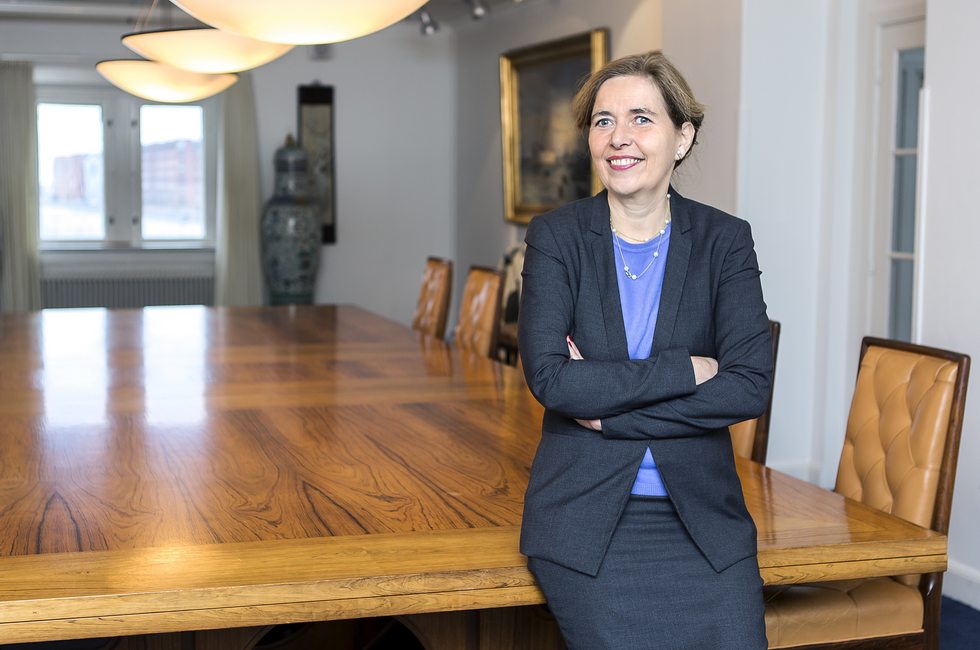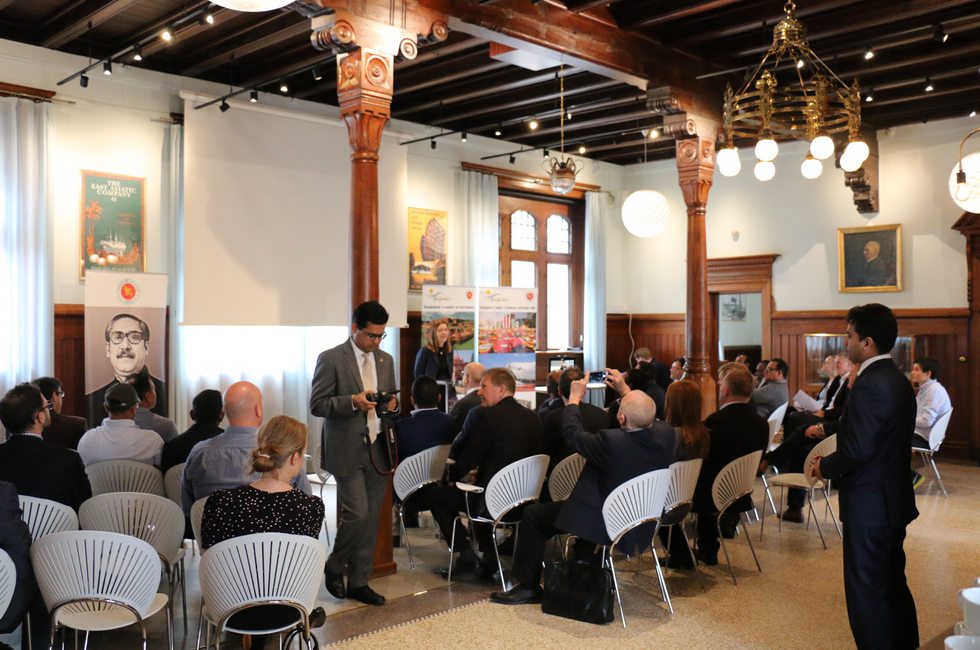Asia House is a Danish organisation that connects Denmark and Asia. With executive director Susanne Rumohr Hækkerup in front, Asia House aims to be a platform of knowledge about business in the Asian market – a market too important to overlook according to the executive director.

120 years ago, a red brick house was built close to a new harbour in Copenhagen to serve as headquarters of the East Asiatic Company. From here, ships and business flowed between Denmark and the East. Today, neither ships nor the East Asiatic Company dock here anymore, but the red brick house and a strong connection to Asia remains.
Now the house is occupied by Asia House, an independent, neutral and non-governmental organisation with Susanne Rumohr Hækkerup as executive director. The organisation provides a platform of help to Danish companies who wish to establish themselves on the Asian market.
“The Danish business community needs stepping stones when they are going to get established and build contacts in Asia. Asia House is the platform that can offer them that,” says the ED.
Contacts is a keyword
One of the stepping stones Asia House can lay in front of companies is very simple but effective: contacts. Asia House has close connections to Danish companies already established in Asia as well as Danish and Asian ambassadors and embassies. That creates a big range of knowledge, which makes Asia House able to help companies with questions about doing business in Asia.
“We are not experts in everything, but we are a place where people can get useful contacts and tools to help them in their further work in Asia,” says Ms. Rumohr Hækkerup.
Often, Danish companies seek Asia House’s help to get information or contact to other companies who already made the leap to Asia. Other times, Asia House does not only help Danes to understand Asia – they also help Asians to understand Danes.
Asia House has close relations to the Asian ambassadors in Copenhagen. They also help new ambassadors to ease into the Danish culture and overcome difficult differences that can appear when two cultures cooperate.
A challenge Asia House often hears from their contacts is different approaches to new business partners. Asians often prefer to spend time building a relationship to a potential new business partner, before they start talking about the actual business matter. They believe it will make it easier to discuss a certain business matter later on.
On the other hand, many Danish companies prefer to go straight to the point and discuss business matters quickly.
“Many Danish companies will not go to a meeting with an Asian company, where they feel like they talk about nothing. Many Asians will take it as a rejection, even though it is not meant like that. We simply have different approaches to business,” she thinks.
Around the world
Susanne Rumohr Hækkerup herself is no stranger to the challenges that can appear when Danish and Asian culture meet. Before she settled for Asia House in March 2016, she was Deputy Head of Mission at the Danish Embassy in Beijing, covering China, Mongolia and North Korea.
In her most recent job, she served as ambassador to Mexico and Caribbean. All in all, the executive director has worked in six countries and visited more than seventy. As she points out, 10 years ago she experienced the problems she also works with today.
“You can say that I do not just see ‘snapshots’ of the development of the relationship between Denmark and Asia. I have watched a whole ‘video’ where I can see what stays the same and what changes.”
She holds a Master of Arts in history and political science from Copenhagen University. The interest in the relationships between nations, especially in the Asian region, caught her interest long ago: “Asia is a very important player today and I think it is the most exciting thing to work with.”
Based on her work at Asia House, she thinks too many Danish companies do not value the Asian market highly enough. After her many years in the international world, she finds it a shame: “The Asian market is way too important to neglect.”
The executive director thinks Denmark in many years has enjoyed being a frontrunner in Asia, but if we do not keep working on that, we will start to slide down the ranks. Here Asia House has a role to play.
“In Asia House we see it as our task to help Denmark move forward in Asia,” she says.

Events in Asia House
To spread knowledge about the Asian market, Asia House lays down another stepping stone in terms of arranging different events. It can be lectures, conferences and exhibitions connected to Asia. Some of the events and their topics are chosen by Asia House, based on what the employees think will be relevant at the moment. These events are open for everyone to join, and Asia House aims at having two open events each month.
Asia House does not only arrange events, they also let people outside borrow rooms in the red brick house to host closed events.
That means Asia House not only is a bank of knowledge and contacts, but also physically creates a gateway to Asian in their old red brick house.




